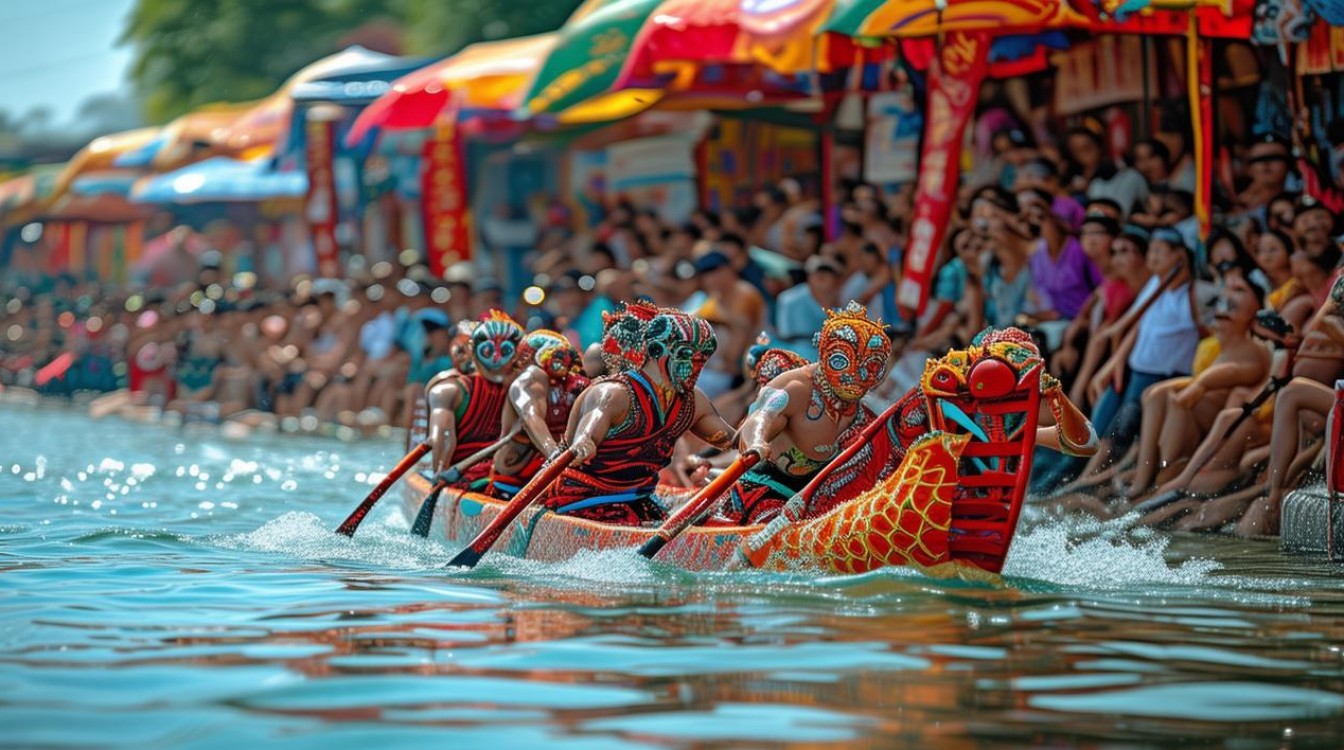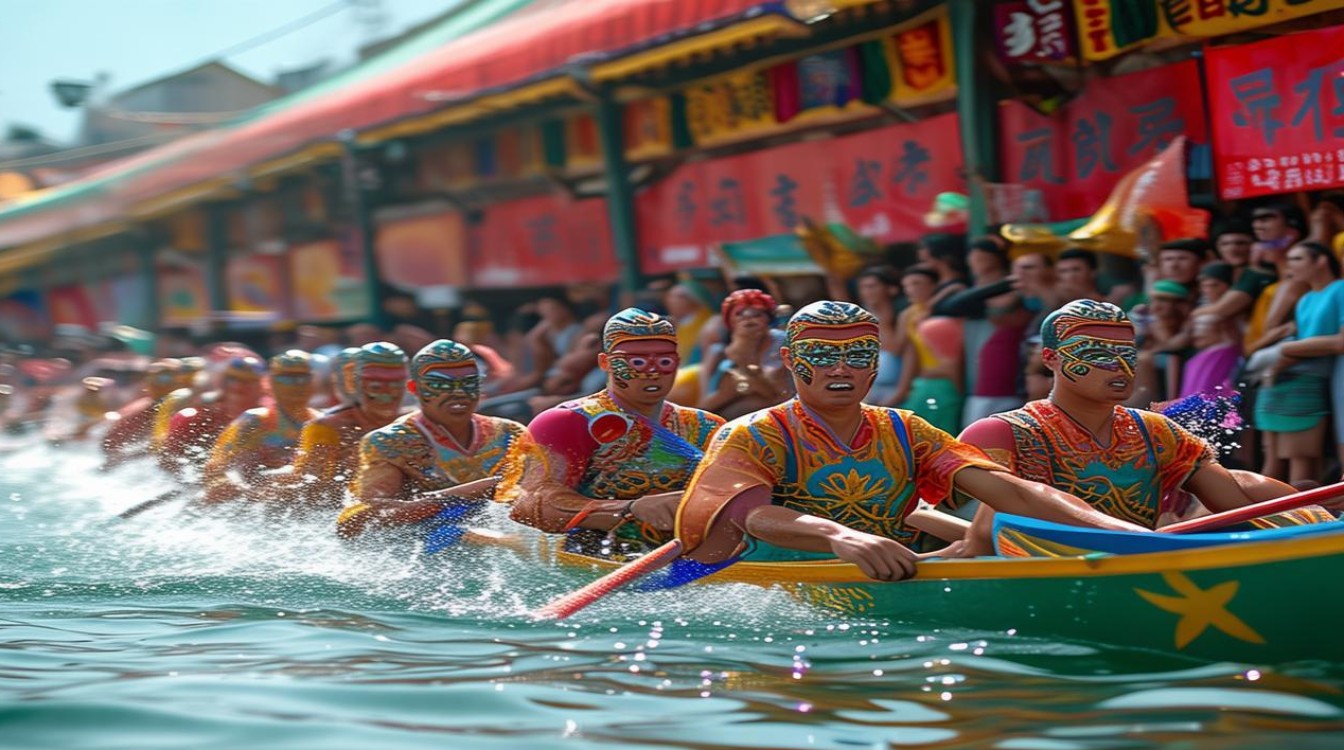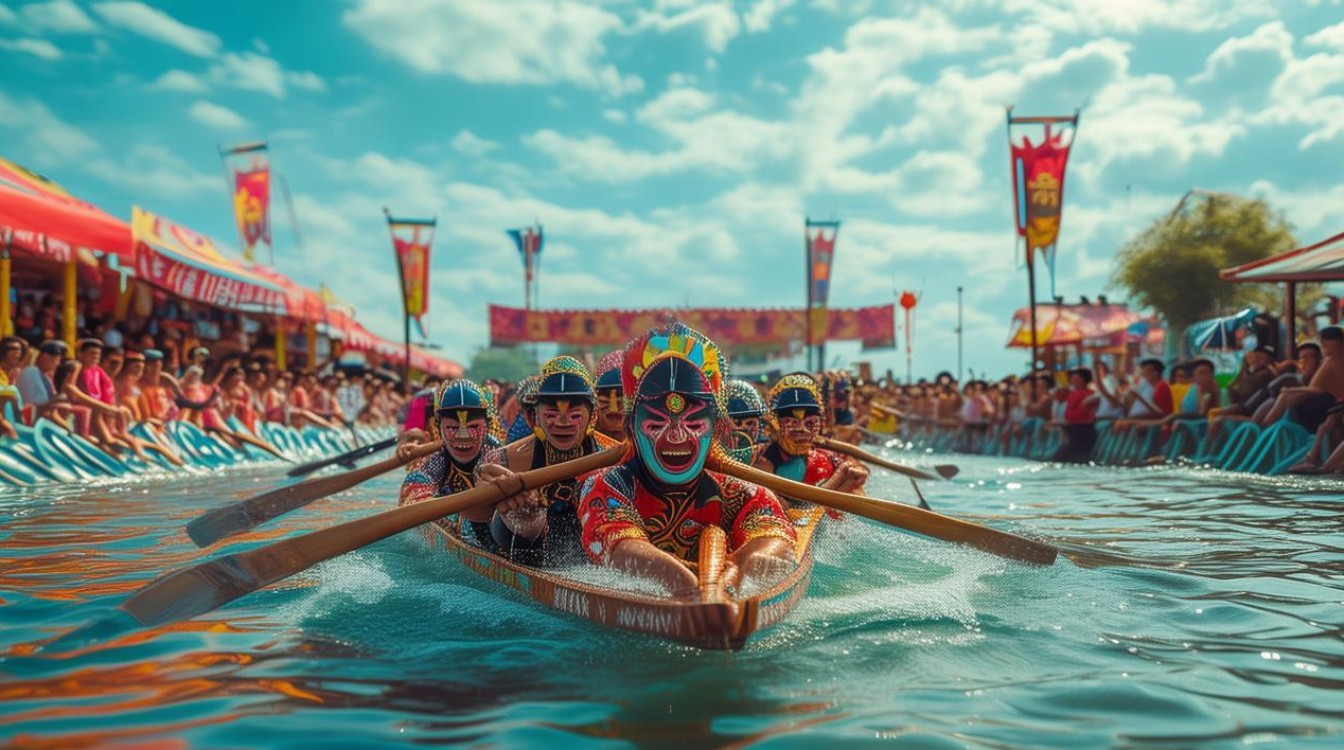The Dragon Boat Festival, known as Duanwu Festival in Chinese, is a time-honored celebration steeped in history, culture, and community spirit. For those eager to explore this festival through the lens of English vocabulary, here’s a vivid journey into its essence, blending language learning with cultural appreciation.

Zongzi (Sticky Rice Dumplings)
The festival’s iconic delicacy, zongzi, is a pyramid-shaped bundle of glutinous rice wrapped in bamboo leaves. The filling varies—savory options include pork, mushrooms, or salted egg yolk, while sweet versions feature red bean paste or dates. The process of steaming or boiling zongzi fills homes with an irresistible aroma, symbolizing warmth and tradition.
Dragon Boat Racing (Competitive Rowing)
The heart-pounding dragon boat races are a highlight. Teams paddle in sync to the rhythm of a drumbeat, their boats adorned with carved dragon heads and vibrant hues. The event embodies teamwork, endurance, and the communal fight against adversity, echoing the legend of Qu Yuan, a patriotic poet whose memory the festival honors.
Qu Yuan (Patriotic Poet)
Central to the festival’s origin is Qu Yuan, a statesman and poet from the Warring States period. His exile and suicide in the Miluo River sparked local fishermen to scatter rice to protect his body—a practice evolving into zongzi and boat races. His poetry, like "Li Sao", reflects loyalty and cultural pride.
Realgar Wine (Traditional Libation)
A sip of realgar wine, infused with mineral realgar, was believed to ward off evil spirits and diseases. Though modern health awareness limits its consumption, the ritual remains a nod to ancient folk medicine and seasonal well-being practices.

Sachets & Five-Color Threads (Protective Charms)
Parents often tie five-color threads around children’s wrists or hang scented sachets filled with herbs like mugwort and calamus. These items symbolize protection, longevity, and the triumph of good fortune over misfortune.
Mugwort & Calamus (Herbal Guardians)
Hanging mugwort and calamus on doors is a centuries-old custom. These aromatic plants are thought to purify the air and repel insects, merging practicality with spiritual symbolism.
Summer Solstice (Seasonal Significance)
The festival aligns with the summer solstice, a time of yang energy peak in Chinese philosophy. Activities like racing and feasting channel this vitality, reflecting harmony between humans and nature.
Family Reunion (Kinship Bonds)
Like many Chinese festivals, Duanwu is a time for family gatherings. Preparing zongzi together or watching races strengthens intergenerational bonds and passes down cultural heritage.

Global Celebrations (Cultural Exchange)
From Hong Kong’s electrifying races to Singapore’s creative zongzi flavors, the festival has gone global. Universities in the U.S. and Europe host cross-cultural workshops, blending dragon boat traditions with local twists.
Modern Adaptations (Innovation Meets Tradition)
Today, vegan zongzi, virtual races, and eco-friendly decorations showcase how the festival evolves while retaining its soul. Social media buzzes with #DragonBoatFestival, bridging ancient customs and digital age connectivity.
The Dragon Boat Festival is more than a holiday—it’s a living tapestry of history, flavors, and shared humanity. Whether you’re savoring zongzi or marveling at racing crews, each element invites you to embrace a culture that thrives on unity and remembrance.
By weaving these English terms into your understanding, the festival’s richness becomes accessible to all, proving that language is no barrier to celebrating heritage.


